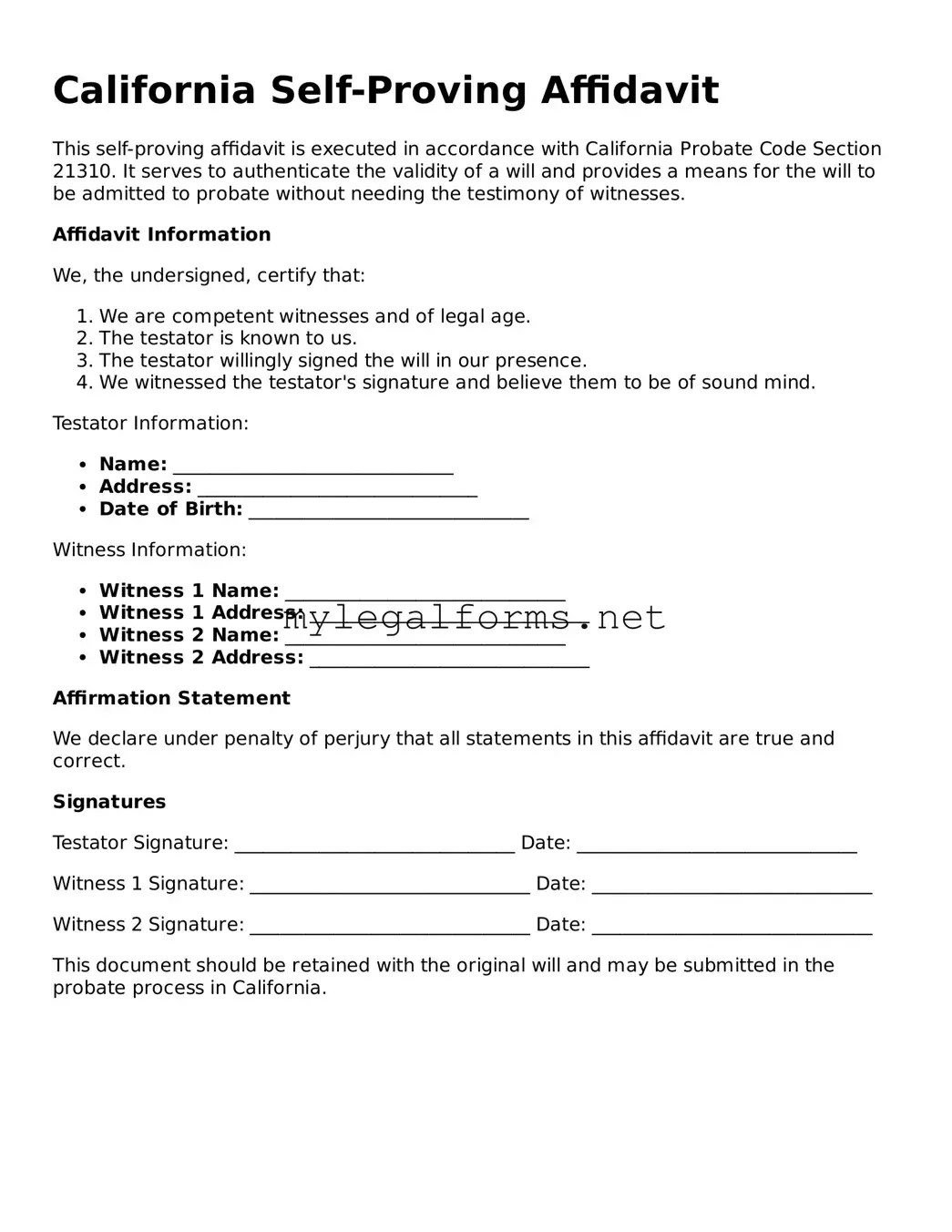Self-Proving Affidavit Document for California State
The California Self-Proving Affidavit form is a legal document that allows a testator's will to be validated without requiring witnesses to testify in court. By using this form, individuals can simplify the probate process, making it more efficient and less burdensome for their loved ones. Understanding this form is essential for anyone looking to ensure their final wishes are honored smoothly.
Launch Self-Proving Affidavit Editor

Self-Proving Affidavit Document for California State
Launch Self-Proving Affidavit Editor

Launch Self-Proving Affidavit Editor
or
⇓ PDF Form
Complete the form at your pace — fast
Finish your Self-Proving Affidavit online and download the final version.